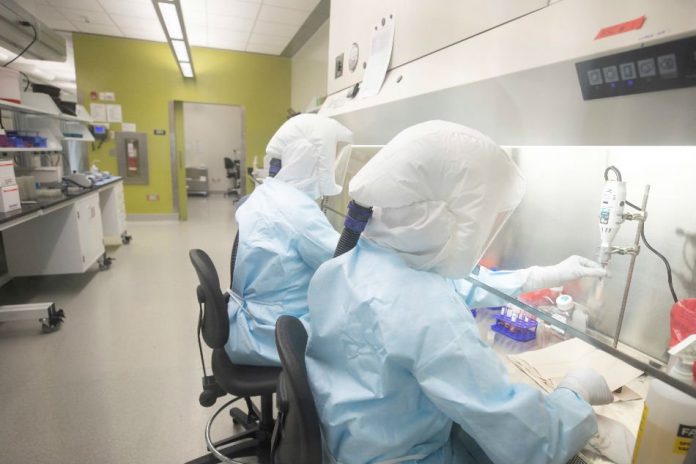
DRUGMAKERS racing to find a vaccine or effective treatment for the deadly new coronavirus in China cautioned that they have a long way to go.
That runs counter to reports of a supposed “breakthrough” that on Wednesday boosted financial markets and spurred optimism not necessarily backed by reality.
At least a dozen drugmakers are working on vaccines or antivirals and other treatments to help those infected with the fast-spreading contagion.
Investment costs for vaccines could run as high as $800 million in a process that, even if accelerated, will likely take more than a year until approval, according to executives from companies involved in the effort.
“It will take at least 12 to 18 months, which means in the acute situation we are in now – at least in China – that will not create a benefit,” said Thomas Breuer, chief medical officer of GlaxoSmithKline’s vaccine unit. GSK is working with developers by providing a technology that could make their vaccines more potent.
To be sure, companies developing treatments for patients who are already sick may be able to get a drug approved faster than a vaccine that would be given to healthy people. Even so, logistical and regulatory challenges remain, according to two executives at Gilead Sciences Inc, which is working on an experimental antiviral treatment.
“There is a distinction there between a therapeutic and a vaccine. Having said that, I think it is true that this won’t be superfast and it will involve us investing at risk right now,” said Gilead chief medical officer Merdad Parsey.
Clinical trials for treatments can be smaller and of shorter duration than for vaccines, Parsey acknowledged.
Challenges in making sure therapies are effective and then scaling up production still remain. Gilead has only a limited supply of its remdesivir, which will be tested against the coronavirus after previously failing in trials as a treatment for Ebola.
“There are no known effective therapeutics against this 2019-nCoV,” said World Health Organization spokesman Tarik Jasarevic, using the current designation for the new coronavirus, when asked about reports of “drug breakthroughs.”
Newer vaccine platforms, such as one developed by Moderna Inc., allow scientists to create a potential vaccine in record time just based on knowing the genetic code of the novel coronavirus. With the genetic code in hand, scientists can start vaccine development without needing a sample of the virus.
Anthony Fauci, director of the US National Institutes of Allergy and Infectious Diseases hopes to have a vaccine available for initial safety testing within two and a half to three months from the time scientists determined the genetic sequence of the virus.
Novavax Inc. research chief Gregory Glenn told Reuters his company has taken vaccines from discovery to clinical testing in 90 days and believes it could do something similar for the new coronavirus.
But to move vaccine candidates from the lab to widespread use in patients involves a number of hurdles, according to health experts and executives for drugmakers working on coronavirus vaccines and treatments.
In addition to scaling up manufacturing capacity and building distribution networks, there are regulatory hurdles such as conducting large clinical trials to make sure a vaccine not only confers immunity to the virus but is safe for use in the general population.
The Coalition for Epidemic Preparedness Innovations has raised around $800 million from donors to aid in preventing pandemic diseases and has allocated some of those funds to biotechs, including Inovio Pharmaceuticals Inc., Moderna Inc. and CureVac, which are working on coronavirus vaccines. (Reuters)







